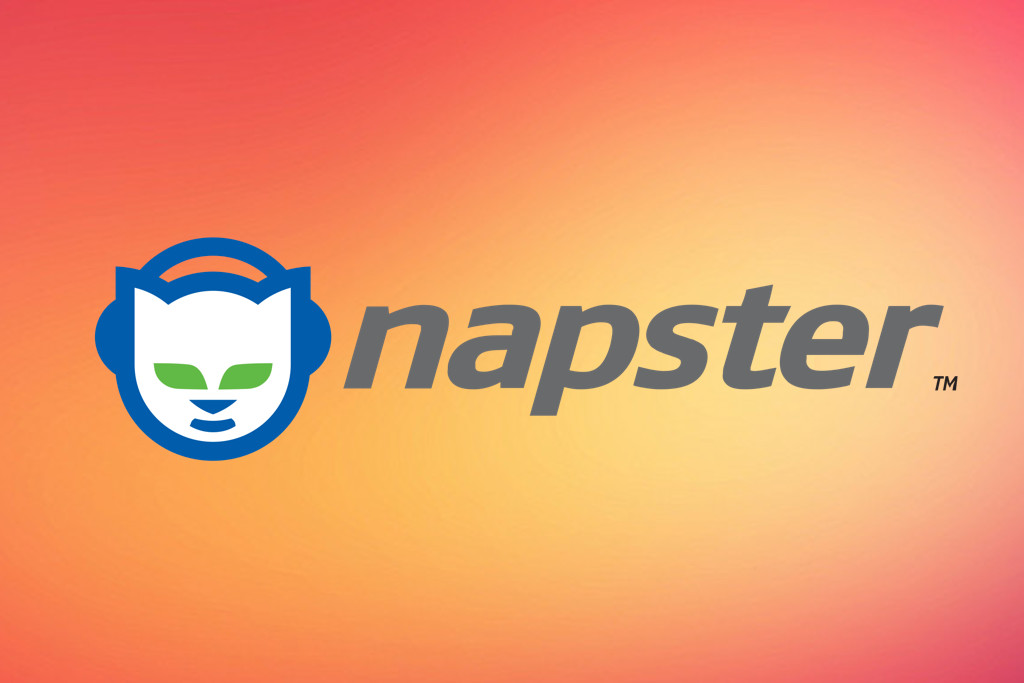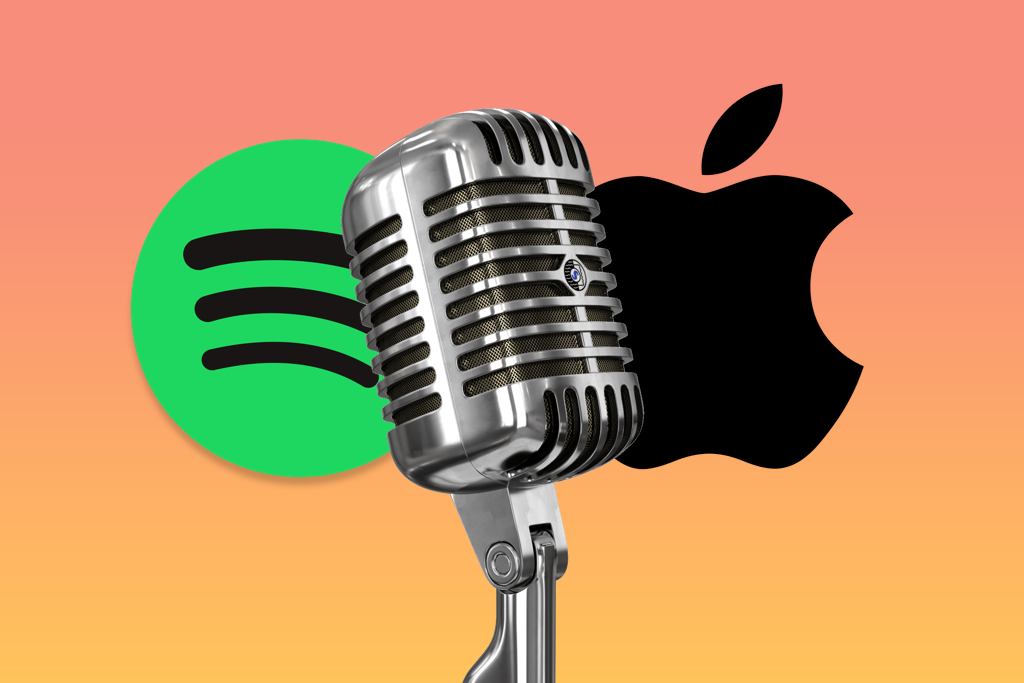Remembering 8Tracks, The Website That Soundtracked The Tumblr Age
Whether you were a DJ searching for tracks, or a Harry Potter fan soundtracking your tumblr - 8tracks was the backbone of online music culture.

In the dying days of 2019, a struggling website quietly called it quits.
After 11 years, online streaming platform 8tracks shut down its service, with just 927,000 active users and $53,000 in subscription and advertising revenue in its final months. It was a sad end for a website which fostered a strong community of music fans devoted to discovering and sharing music, and helped shape online music culture throughout the 2010s.
Launched in 2008 by David Porter and Remi Gabillet, the premise of 8tracks was fairly simple: music fans would curate playlists of eight tracks or more and share them with the public. The idea for 8tracks came to Porter after being inspired by a combination of London’s club scene and Napster, the peer-to-peer music sharing service that ended up getting busted for copyright infringement.
Porter saw a gap online; a hub where users can add a tracklist, listen to the music right there and then, and discover new music that has been personally recommended by other users. He compared to the work of club DJs, who listeners looked to for a certain genre or feel.
“Because there were so many fragmented producers of electronic music, the DJ served as listeners’ focal point,” Porter wrote in a 2013 blog post. “Facing a nearly infinite catalog of music now available via Napster, listeners needed a way to find new stuff they’d like, and I thought there could be a way to replicate this DJ paradigm online.”
The platform launched at the perfect time, just as the online space became more interactive. Tumblr fandoms leapt on the service, sharing playlists that fully expressed the passion for their ships or Hogwarts houses.
Indie teens found new excuses to flaunt their ‘I knew them before they were cool’ taste by creating mixes around obscure moods, such as “The longwinded blues of the never”. The best part? Unlike Napster, there were no court battles in sight, thanks to a special intellectual property license available in the US.
8tracks asked me if i wanted to save my liked playlists on spotify before they take the whole thing down and boy was i going through it in 2012-2014 pic.twitter.com/MNhf1qxiSe
— shark tale apologist (@hunterschaefr) January 8, 2020
Aspiring DJs considered 8tracks a goldmine, easily adding uncovered tracks from indie artists and record labels to their mixes. The artists got the spotlight while the successful DJs got the tastemaking clout.
By 2011, the desire for new, undiscovered music was so popular that 8tracks reached an agreement with SoundCloud that allowed DJs to add tracks from SoundCloud to 8tracks playlists. In its prime, the site had eight million users and 30 million hours of music streamed monthly.
Streaming Killed The 8Tracks Star
However, the platform’s popularity somewhat contributed to its downfall. In 2013, listener and revenue figures became so large, it was no longer classified as a ‘small webcaster’. This meant instead of paying royalties as a percentage of its revenue, 8tracks now had to pay royalties per play, which was far more expensive and eventually took them out of profitability. Not to mention small webcaster licenses expired in 2015, harming a bunch of other online businesses that took advantage of it.
Spotify’s growing popularity was just another nail in 8tracks’ coffin. In the final blog post, Porter acknowledges that Spotify was a significant contributor to the site’s downfall, as streaming became a mainstream form of listening and Spotify hired editorial staff to curate a smorgasbord of public playlists.
“Spotify’s free offering on mobile, launched in December 2013, began to cannibalise our audience,” he wrote. “We lost listenership, in large part, because Spotify was able to satisfactorily address listener needs for music discovery and activity — and mood-based listening over time, as it improved its offering, reducing the relative appeal of 8tracks’ early lead in delivering on its unique value propositions through a crowd-curated model.”
After numerous attempts at sourcing enough funding or being bought out by another company, the team called it quits on December 26, 2019. Its final day was five days later.
is there any greater solidarity in millennials than in finding indie bands via otp mixes on 8tracks
— faatima (@fauxvais) July 1, 2019
A Relic Of Days Gone By
Now, 8tracks is just another relic of the old internet. It existed both before online advertisers began to realise how every click, stream, and scroll is an opportunity for profit or algorithms ruled the high seas, taking guesses at what content we want more of. Sure, 8tracks used advertising to sustain its operations, but its model was fairly benign compared to the internet of today.
Personal curation and expression, while seemingly more possible thanks to the range of online tools around us, conversely seem harder in the face of social media. Facebook, Instagram and Spotify all rely on machine learning to suggest similar content to users, while favouring those with a marketing budget to spend.
The platform’s ethos remained the same: artistic expression the way you want it, without artificial influence.
8tracks was far less inclined to follow this route. Even in its late years when Facebook’s opaque News Feed began to dominate, the platform’s ethos remained the same: artistic expression the way you want it, without artificial influence.
As critic Cher Tan wrote recently in Kill Your Darlings, “If we relate to the things that become more familiar if only due to its repetition, it slowly becomes difficult to differentiate what is ‘relatable’ to what is projection or conveniently applied”.
This is true in the case of Spotify: how do we know whether the music recommended to us is good or an algorithmic assumption — particularly when there are fewer upfront avenues to recommend and be recommended tracks by a human? Sometimes I don’t want to hear Mitski in the computer-generated radio stream of my handcrafted R&B playlist, but Spotify still includes it regardless.
8tracks’ influence over later companies like Spotify is obvious. You know all those mood playlists that Spotify loves to promote so much? That was a significant part of 8track’s whole shtick. Playlists like ‘We Be Vibin’’ and ‘Life Sucks’ are already there waiting for you, except now they’re possibly being used to track your emotional state and market products to you accordingly (not a joke).
Spotify isn’t the only tech company that has used machine learning to feed you tunes. TikTok has been the birthplace of chart-toppers, including Lil Nas X’s ‘Old Town Road’ and Lizzo’s ‘Truth Hurts’. Again, the app is driven entirely by an algorithm, showing you videos and audio it expects you to find entertaining.
This new opportunity to go viral has become so valuable that, as Cat Zhang writes for Pitchfork, record labels are actively seeking out stars who’ll make TikTok-viral hits and “reverse-engineering” songs so they intentionally spread throughout the app. Labels churning out uninspired tracks for the sake of raking in the dough isn’t a new concept, but this is a new dimension of strategic marketing that users may not even think about as they engage.
The Days Of The Organic Mixtape Are Numbered
It’s obviously not impossible to share playlists and hidden musical gems with your mates, but this grassroots, uninterrupted approach of discovering music is becoming a thing of the past. It’s not clear whether a commercially-sustainable, DIY platform will rise to the challenge of replacing 8tracks.
SoundCloud is filling some of the holes left behind by 8tracks, and TikTok users are sharing playlists that resemble those ethereal moods you might recognise from coming of age films, but a streaming platform dedicated entirely to playlist sharing, track identification and personal expression no longer exists.
After all, personal recommendation is one of the strongest forms of advertising — one that a computer or a group of faceless editors can never genuinely offer.
Caleb Triscari is a writer and former editor of Farrago, the student publication of the University of Melbourne. He tweets at @calebjtriscari.

